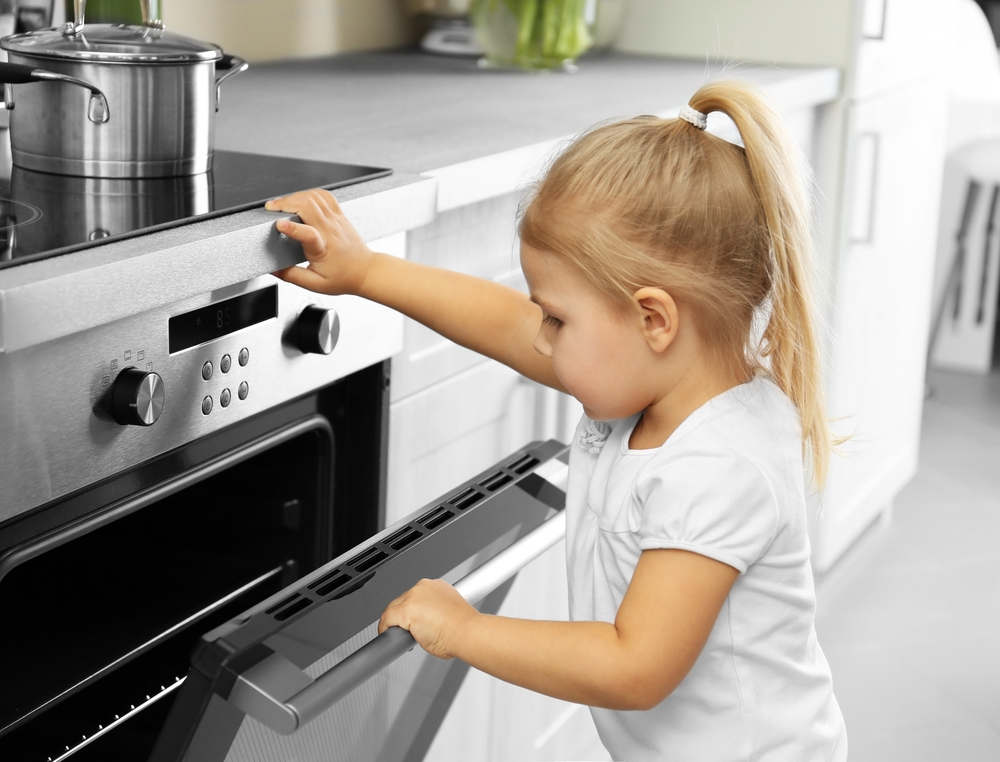Whenever we think of cooking, putting on an apron, using utensils like a master chef, and sniffing sweet smells, cooking in the kitchen sounds fun. It is an art. But this art is only successful with full attention and safety measures.
The kitchen being the hub of every household, or the most dangerous room in the house, demands crucial safety considerations. From sharp knives to open flames from a stove, there can be countless silent hazards in the kitchen capable of causing serious injuries.
In this article, we’ve compiled a list of 14 tips to help you and your loved ones avoid any injury while in the kitchen and cook yourself a nice meal safe and sound.
1. Install A Carbon Monoxide Detector
The best aspect of kitchen safety to keep your loved ones miles away from the risk of gas hazards is to install a carbon monoxide alarm that serves as a life-saving device. Since carbon monoxide is a poisonous, colorless, and odorless gas, the gas detector will sense leakage caused by a faulty stove or heater in the house.
However, instead of focusing on gas leakage itself, it is best recommended to follow strict measures to avoid leakage. Getting all the gas appliances in your house inspected by experts for faults is vital in ensuring gas safety.
Bear in mind that for all the citizens of the UK, it is mandatory by law to get all their appliances checked by engineers and obtain a gas safety certificate cp12.
2. Organize Your Kitchen Smartly
How to choose an apple over chocolate? The answer revolves around how and where you store it. When we are hungry but can’t find anything to eat because our kitchen is a disaster. In this scenario, we usually eat what we grab instantly.
Regarding eating healthy, counting calories and reading the labels are not enough. Instead, the solution lies in re-arranging your kitchen shelves.
3. Create Functional Zones
The key to consuming healthier is to store the fruits and veggies as closely as possible to where you use them. For example, store fruits, e.g. bananas, oranges, etc., on the dining table. Store dry fruits in air-tight jars in one kitchen cabinet and spices in the other.
For busy people, it is essential to maintain a tidy freezer stocked with proteins and frozen vegetables when you are not buying them fresh.
4. Cook in a Clean Space
Washing your hands before and after cooking is common sense, but most people forget this step. According to WHO, unsafe food is the leading cause of more than 200 infections worldwide.
So, never forget to wash your hands, especially handling raw meat. Sanitize your space and utensils, and wash fruits even before peeling since they carry many pathogens lingering on the surface.
5. Maintain a Safe Temperature
One of the smartest kitchen appliances is the food thermometer which ensures that you are cooking to a safe temperature without over-cooking the food.
6. Store Food Properly
Bear in mind the food expiration dates and always refrigerate perishable food that is kept at room temperature. Moreover, ensure that meat items are stored in air-tight bags and containers since improper canning can result in bacteria growth leading to botulism.
7. Use Magnetic Holders
Leaving kitchen knives on the shelves can give rise to nasty accidents especially if you have children roaming around. Therefore, don’t forget to hide knives from the sight of children in the kitchen.
8. Follow the Manual
Our modern lifestyle relies heavily on smart kitchen appliances. If you are using an appliance for the first time, it’s crucial to take a moment and read carefully the mentioned instructions. This will make your cooking experience less scary.
9. Ensure Safe Dressing
Never walk barefoot in the kitchen. Wearing shoes provide protection from fallen objects, broken glasses, or oil spills. Moreover, avoid wearing hanging jewellery or baggy and synthetic clothing since they can catch fire or come in contact with the pot.
Finding hair in the meal can make you feel gross as it suggests the food is cooked in an unhygienic environment with a lack of attention. Always make sure that you are wearing an apron and that your hair is pulled back neatly.
10. Don’t Use Metal on Nonstick Cookware
Nonstick cookware is hyped these days as cleanup is a breeze. The fact is that the nonstick pans are not worth the hype. When you use metal utensils, the special coating on nonstick pans begins to break down. Ingesting the toxic compounds of this coating can make you sick.
Therefore, it is recommended to use wooden or plastic spoons when cooking in non-stick pans. Nonstick cookware doesn’t last forever. So, replace it as soon as it starts to flake.
11. Install a Fire Extinguisher
Cooking is the prime cause of household fires since it takes seconds to go uncontrollable. In emergencies, knowing the usage of fire extinguishers is paramount.
Different types of fire require different extinguishing techniques. Baking soda instead of water is the best deal to out a fire. A fire inside a microwave is put out by keeping the door closed and switching off the electric appliance.
12. Clean Up the Spills Immediately
When you spill a glass of juice in the morning or oil while cooking, don’t forget to clean up the spillage, especially when you have tiny nosy creatures playing in the house. Slip from the spillage can cause serious injuries. Always remember, prevention is the best cure!
13. Keep a First-Aid Kit Handy
An unlimited number of scenarios can happen while working in the kitchen. You may get into contact with a hot pan causing skin burns or God forbids it, and your finger may get a sharp cut while chopping veggies. Therefore, it is crucial to have a first aid kit in your kitchen for instant help.
14. Use Separate Chopping Boards
It sounds tempting to use a single cutting board for raw meat, vegetables, and fruits and nobody likes to eat meals from such kitchens to make a shortcut to cleaning duties.
When you use the same chopping board for all the items, you are guaranteed free tickets for food poisoning for your family. Therefore, it is advised to use one chopping board for meat items and the other for fruits & vegetables.
Final Words
Understanding the risk present in your kitchen and knowing the basic safety tips will help you and your family avoid accidents and keep your meals healthy.
Though these measures may sound time-consuming, they will put your mind at ease and save you and your family from illness and injuries.
Have a happy and healthy cooking experience!




